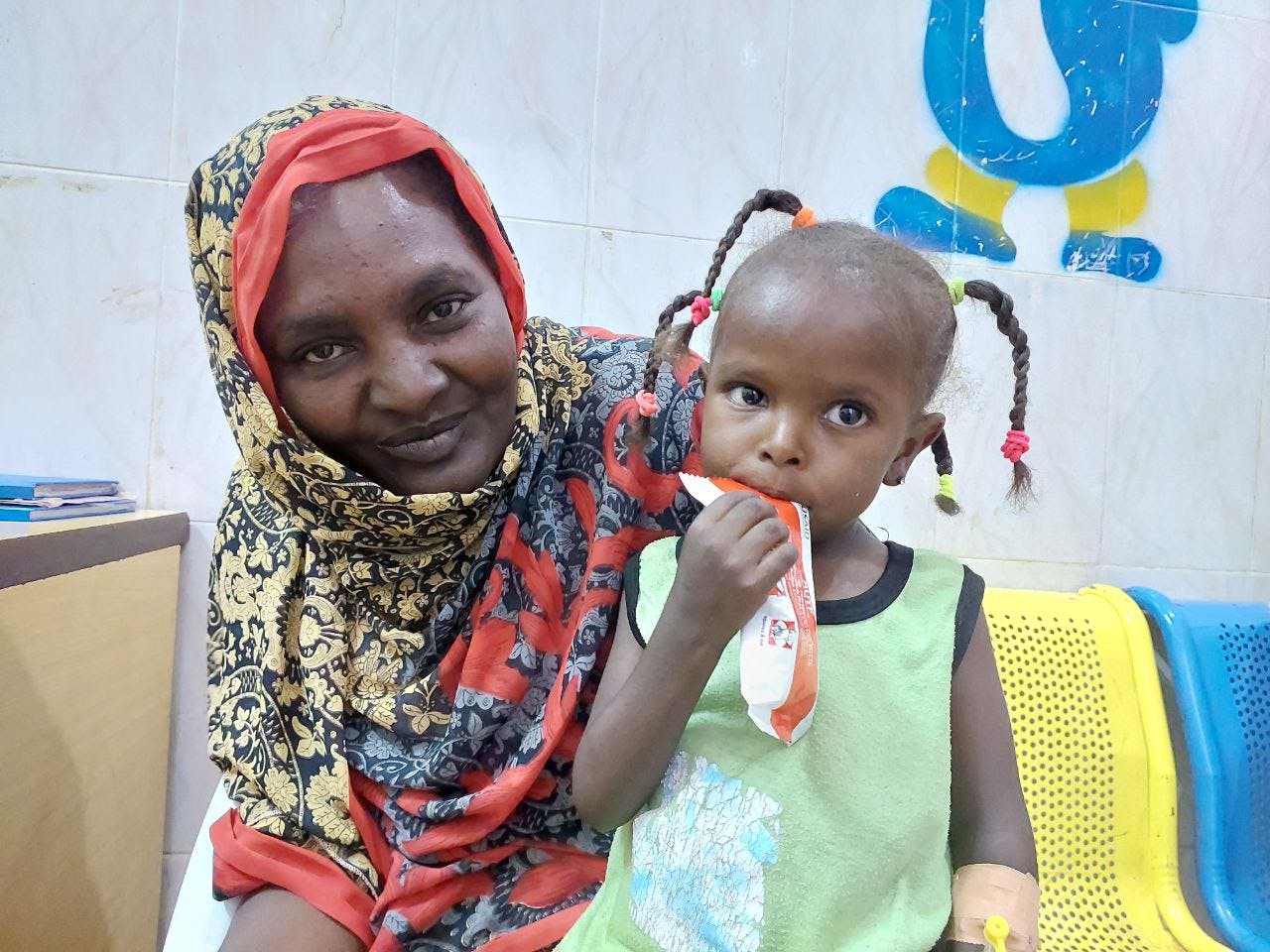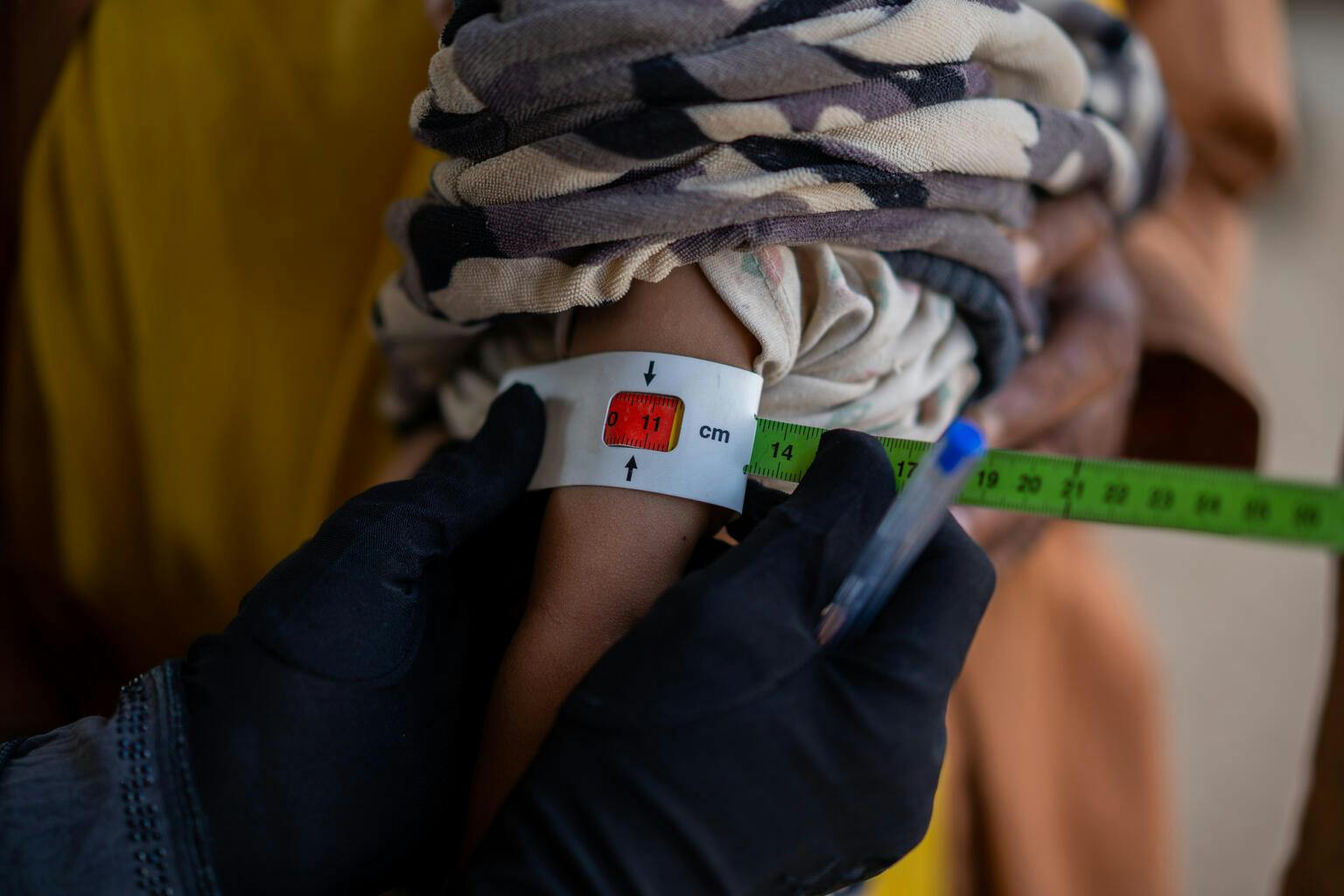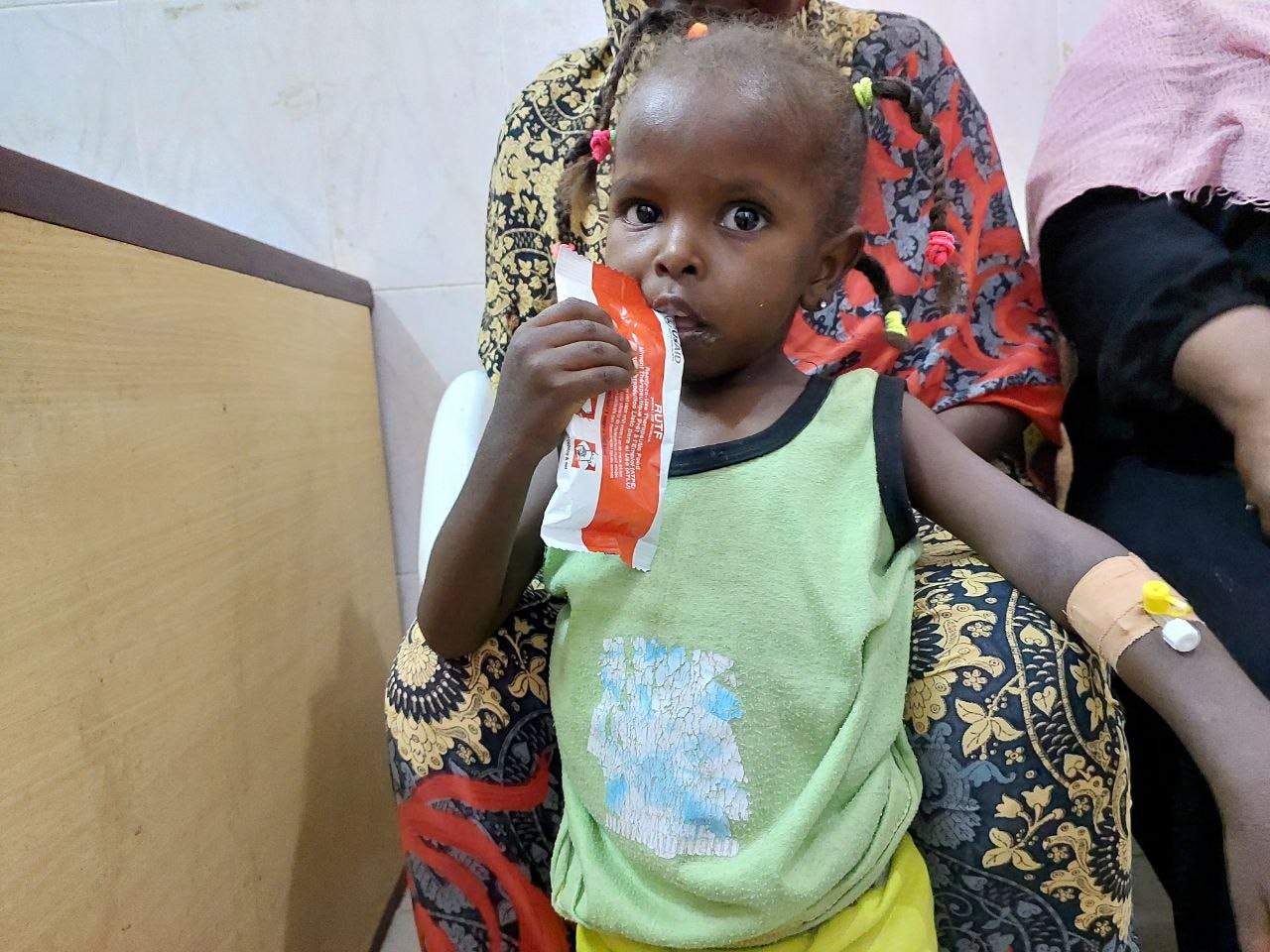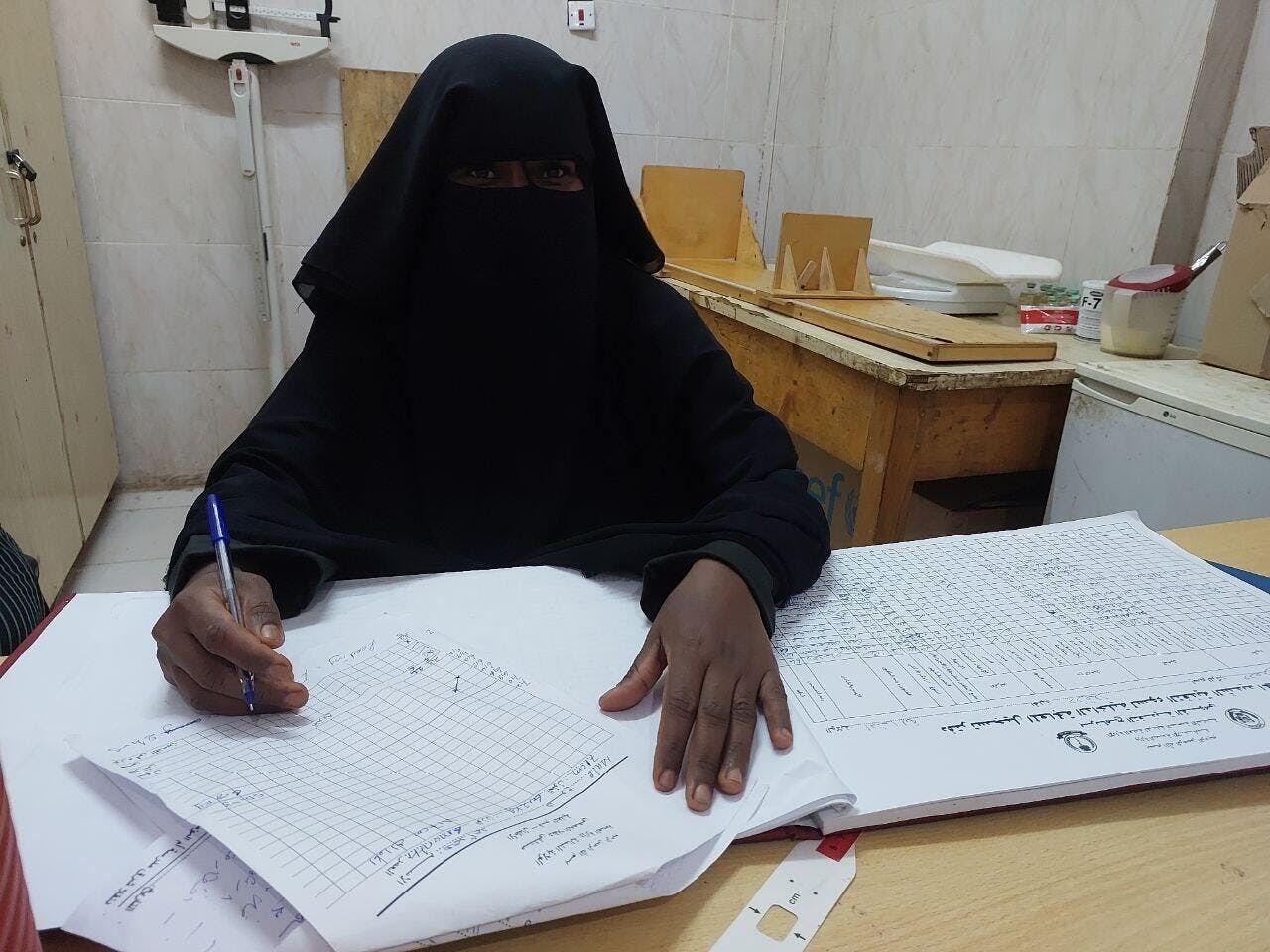
The ‘packed meal’
that helped AlBatoul
recover from malnutrition
Home
Stories
The ‘packed meal’ that helped AlBatoul recover from malnutrition
UNICEF reaches malnourished kids with much needed treatment and care.
Children in Sudan are bearing
the brunt of the conflict.
Families with children are spending days on the road with little or nothing to eat. Even when settling down in their new homes, many still can’t afford regular or nutritious meals their kids need to thrive.
32-year-old Mahdia sits next to her 3-year-old daughter, AlBatoul, in the nutrition ward in Dongola specialised hospital. A few days ago, AlBatoul started to feel unwell. She was vomiting and had diarrhea. The usually bubbly AlBatoul was suddenly quiet, weak, and sleepy.
Mahdia rushed her to Dongola hospital where AlBatoul was diagnosed with severe acute malnutrition with medical complications. She weighed 8.4 kilos - much less for her age - and her mid-upper arm circumference (MUAC) reading was red – the danger zone.

UN0849678

©UNICEF/UN0773521/Hayyan
An example of a mid-upper arm circumference (MUAC) band being used to screen children for malnutrition.
This health facility in Sudan is providing critical health care services including nutrition treatment and care for displaced children and those from local communities.
Mahdia and many other families recently arrived in Dongola after intense fighting in Khartoum where they lived. With harsh weather and unfavourable conditions, the exhausting journey took a toll on her family, including little AlBatoul.
When UNICEF staff met AlBatoul, she’d been in the hospital for five days. In addition to the treatment for medical complications, she also received therapeutic care and treatment.
Thanks to the support of donors, the hospital has enough stock of therapeutic milk and ready-to-use-therapeutic food (RUTF) for children suffering from malnutrition.
During the conflict in Sudan, UNICEF and partners have delivered truckloads of health and nutrition supplies around the country to support the growing number of displaced communities. We’ve also continued to operate over 80% of the malnutrition treatment centres across Sudan for children with severe acute malnutrition.
As a mother, Mahdia is super relieved with her daughter’s progress.

UN0849679
“She started on milk, and they have now introduced the ‘packed meal’ ” she says. “This is her second packet today and she eats three a day. Indeed, after she had this packet, her situation is much better and she looks better,” Mahdia shares with a smile. “She is enjoying it. After these two days she has gained weight.”
The RUTF boosting AlBatoul’s health is a wonder food with highly nutritious vitamins and minerals needed to treat children suffering from severe malnutrition. It’s super easy to use and store, especially during conflicts and other emergencies.
Nour-elhuda Abdallah Salih, a nutrition specialist at the hospital, has been looking after AlBatoul since she arrived.

©UNICEF/UN0849683/Abdallah
Health workers at Dongola are currently attending to a growing number of mothers looking for care and treatment for their malnourished children, returning for follow up visits, nutrition screening and RUTF top-ups.
While giving educational nutrition sessions for the mothers, Salih stresses the need for them to return for follow-up checks until their children fully recover.
As mothers follow the information – treating their kids with the therapeutic food provided, many more children are overcoming malnutrition.
“My biggest fear is interruption in the delivery of health supplies because this will definitely impact the services we provide,” she continues.
Seeing malnourished children like AlBatoul bounce back on their feet is what motivates Salih.
“When I treat a child especially during tough conditions is a great honor for me. And every time I save a child from a threatening disease warms my heart,” Salih shares.
Now weighing 8.8 kilos, AlBatoul was able to head home with her mother. In the meantime and with the backing of UNICEF’s supporters, Salih and other health workers stay on to attend to other children coming through to the nutrition centre needed treatment for malnutrition.
